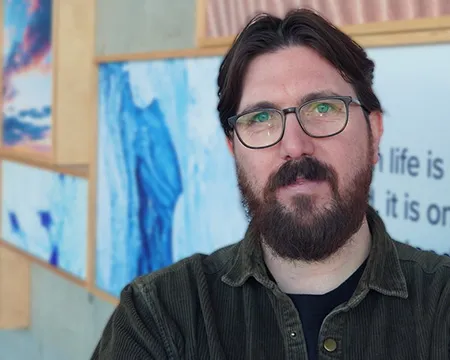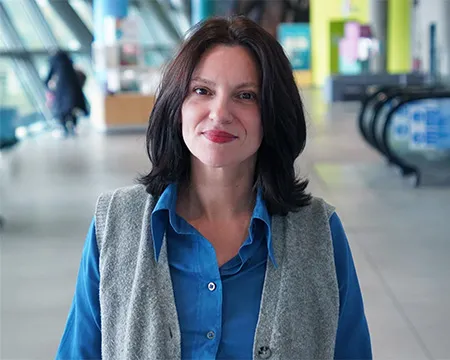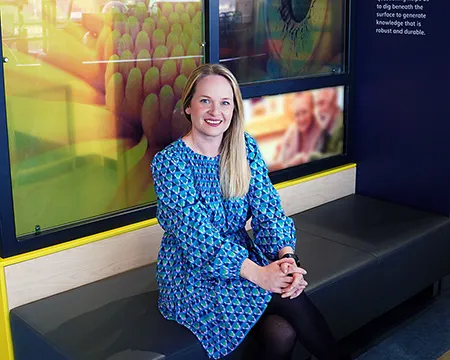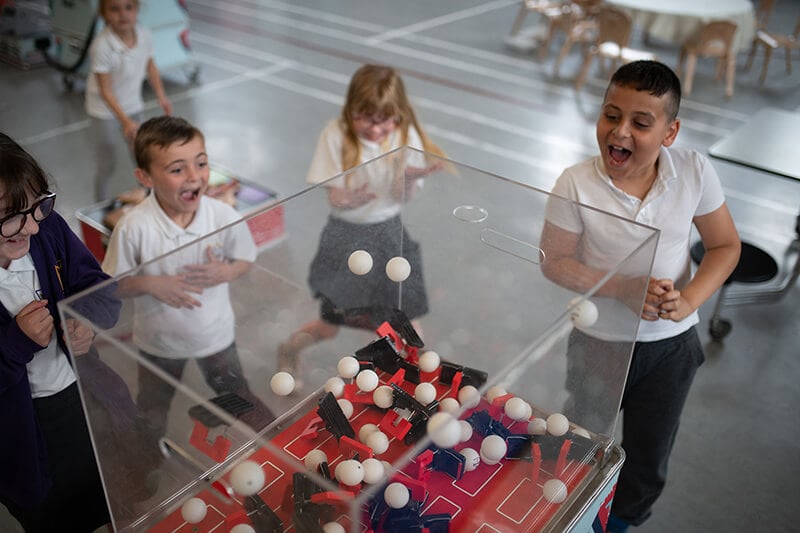Women of Glasgow at the climate table
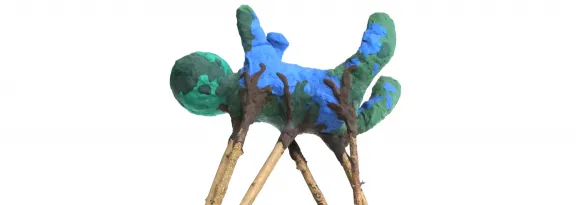
Glasgow Science Centre's Caitlin MacInnes finds women of Glasgow at the climate table thanks to a group of climate sisters, formed during a climate leadership course to raise their creative voices.
The climate crisis is not gender neutral. Women are more likely to live in poverty than men, have less access to basic human rights and are more likely to experience systematic violence. The instability that comes with the climate crisis will amplify these issues. For example, the agricultural sector is the largest employer for women of low-income backgrounds. During extreme weather, the burden of work increases and puts pressure on girls to drop out of school to support the family. It is crucial that women, particularly women of colour, are represented in the decision-making around the climate crisis and have access to education on the topic.
In 2020, 13 women across Glasgow took part in a climate leadership course, led by climate justice advocate Zarina Ahmad, which covered a range of climate topics based on the individuals' interests and experiences. The women, who were all from different backgrounds, were encouraged to develop the ideas they had formed during this course, highlighting the aspects of climate change that they cared most about, into creative ways to have their voices heard.
The group, now known as The Climate Sisters, was supported by the University of Glasgow and Glasgow Science Centre to create an exhibition that was presented at the Whiteinch Centre during COP26 in Glasgow. The exhibits range from jewelry and sculptures made from recycled materials to music videos, podcasts and even an escape room game. I spoke with a few of The Climate Sisters about their exhibits and their interest and concerns on climate change.
Meray Diner shares the importance of Scotland’s peatlands through a video she created, imagining aliens visiting Earth in 2121 to harvest plants after humans have gone extinct. Peat, an accumulation of decayed organic material, absorbs and stores carbon dioxide from the environment. Peatlands cover 20% of Scotland's land, providing an important habitat and freshwater filtration. The Scottish Government commitment to tackle climate change includes a major investment in the restoration of peatlands. Meray said, “We need a systemic change; people can’t possibly do everything on their own. We need to be better informed, be more active about putting pressure on.”
Like 75% of Glaswegians, Meneisia Keister lives in a flat and doesn’t have access to a garden. Menesia Keister focused on growing food to take charge of her own food security and to improve her mental health during lockdown. Through the Climate Sisters she met Heather Dundas and together they created a portable pallet garden which allows users to grow anywhere. Talking about her project, Menesia said, “It’s the freedom that you have, to decide what you want to put in your garden. We can teach children about gardening and self-sustainability. It also allows people to be in control of their own food supply rather than relying on shops or systems like food banks in times of need.“
Singer and songwriter Amanda Bogle chose to release a music video, This World is on Fire, addressing her main climate change passion about waste reduction. She says, “In the Western world, in this country, we aren’t seeing the effects of climate change just yet and we very much have a throw-away culture. The UK ships its recycling waste to other countries to process, mainly Malaysia. However, many countries that buy and recycle waste are pushing back.” She hopes her song acts as a call to action to wake up and see this before it’s too late.
There is an equal need for a societal shift towards respecting nature and systematic change from our governments and major corporations. This idea is the basis of an escape game built by Monica Kadwe. She believes in the importance of role models and starting conversations around the climate crisis. Monica says, “I think gradually in families everything will start to change, but it is my responsibility to expose my kids to these things, show them the options that they can use”.
Thinking about the impact of the Climate Sisters, group leader Zarina shares, “We don’t have to tell the whole world, even a small group who learns from each other can connect and spread the word.” Perhaps lines from Climate Sister Khabat Malarasheed’s poem, Through My Flowers, written in both English and Arabic sums it best,
“Where do you stand?”
This is our choice – we can plant the seed.”
You can learn more about the Climate Sisters by visiting our community project page, or view the exhibit, which can be found on the ground floor of our science street.
Further information
This blog post, written by Caitlin MacInnes from Glasgow Science Centre, is adapted from an article that first appeared in Glasgow Times in August 2022.

